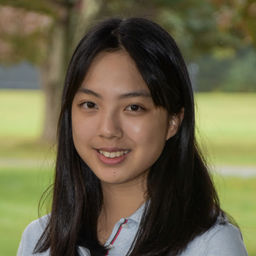News
Student Runner-Up in New York Times Essay Contest

January 10, 2020
Congratulations to Jane Li ’20, whose personal essay, “Under the Starry Sky,” won a runner-up prize in the New York Times Learning Network 2019 Personal Narrative Essay Contest. Out of more than 8,000 entries, a total of eight winners, eight runners-up and 20 honorable mentions were chosen.
Read her poem below:
Under the Starry Sky by Jane Li ’20
-2005- Mom slowly let go of my hands, and I stopped, looked at her, and started toddling towards Waipo, who hugged me tightly.
-2010- “You should consider giving birth to another child, and I wish for a boy,” Waipo murmured to Mom while I was asleep.
Since then, I barely visited Waipo.
-2015- During the summer, Mom arranged a family trip to Yunnan, a beautiful province in southwestern China.
I did not talk to Waipo at all during the trip.
One day Mom was sick; I put on her apron and walked towards Waipo with heavy steps.
We did not communicate.
I picked up a tomato and squeezed and cut it. Tomato juice splashed everywhere—it formed a random pattern on my plain, white shirt.
“Don’t worry! We can get tomato juice off your shirt easily.”
“I don’t need your help!” I pushed Waipo aside, and she struggled to balance her body—I felt sorry, but I said nothing.
Waipo’s smile disappeared, but she demonstrated the right way to cut a tomato patiently. She wrapped her coarse short fingers around the tomato gently, and I saw a tiny crack on the surface of the tomato as the knifepoint gradually embedded deeper.
“You need to be gentle with tomatoes because they are juicy.” Waipo put down the knife and turned to me, “try it again.”
“It’s too hard! I quit!” I turned around.
I turned my head around when I heard the shrouded sound of the range hood—a confident woman, shoulders hunched, holding a pan, all her motions coherent and unhurried.
The stir-fried potato stipes turned into golden yellow, and the pungent spicy-sour smell arouse my appetite. I felt the smell slowly fill my nostrils; hot steam made my face burn. Waipo’s face was looming—I entered a trance.
Her teeth were white and tidy; her eyes were brown and big, with her eyelashes formed a perfect arc under her eyelids. On top, the long eyelashes, thick like feathers, gently quivered when she blinked; her dimples showed when she smiled; her curly, long hair hung over her shoulders. She grew bigger; she hugged me tightly.
Waipo blew away the steam; I looked at her. Only her eyes were still intensely alive, in a face slashed with wrinkles, each one lined with a deep black furrow.
I felt drums beating in my head; I ran outside. The sky was like a curtain of silk with some random brushes of red, pink, and yellow embellishing the flat white and blue. Our hotel was on a hill and the boundless ocean, getting darker and more mysterious, was beneath. The sea song of the waves soothed me, and the fresh air filled up my mouth with breeze; the soft slapping of the sea was muted into a deep murmur; the waves were merely snoozing and slumbering under the starry sky.
“What happened, my dear?” Waipo followed me out with a worried frown on her face. “Oh, look at the stars. How beautiful they are!”
Overlooking the endless ocean, my eyes tracing to the point where it connected to the sky—I was encouraged by the power and beauty of nature. “Waipo, why did you want a grandson? Why are boys always valued more than girls?”
“Honey, ancient Chinese did value boys, but that was not my thought. I only hoped there could be a boy in this family who could protect my little princess.”Ten years have passed, and I finally dared to ask the questions that had haunted me for years. Waipo opened her arms; she hugged me tightly.
